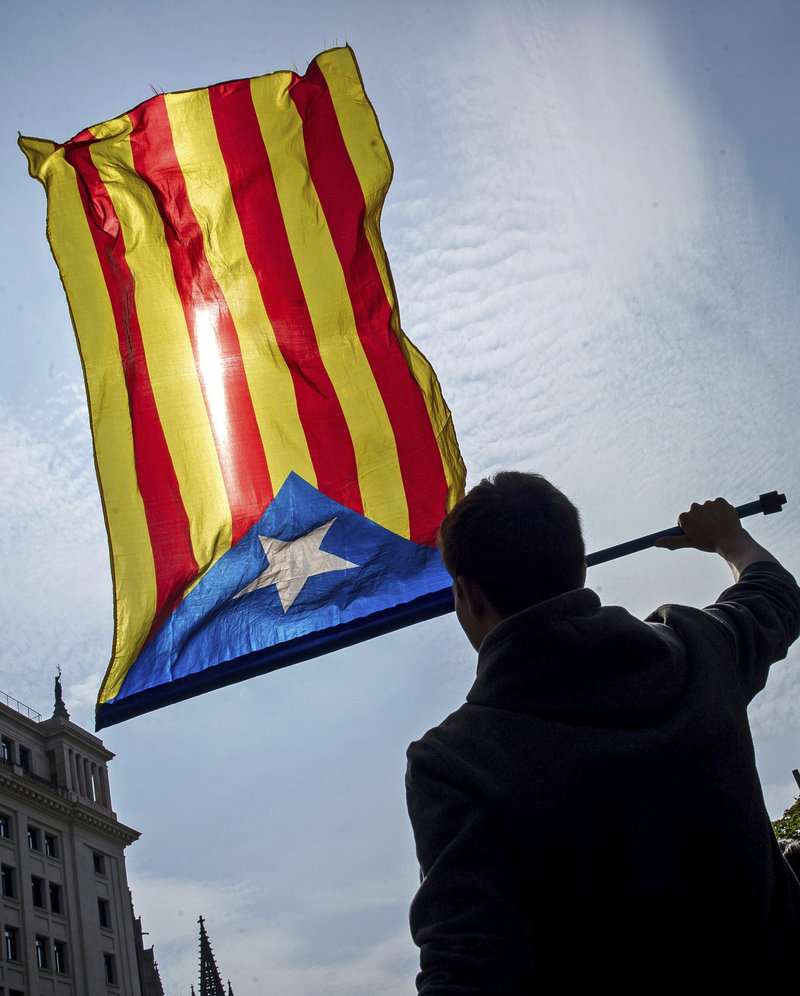A NEW STEP FOR INDEPENDENCE
Last March 11 and 12, the National Conference of the Pro-independence Civil Movement was held, organised by the Catalan National Assembly. More than 50 civil society organisations met to reach a major National Pact on the road to independence. This conference took place after the demonstration of more than half a million people for the independence of Catalonia in Barcelona on the National Day of September 11.
In this conference, the economic aspects of the transition towards independence were discussed, among other topics. In fact, independence is the only way to eliminate the colonial economic plunder of Catalonia by Spain of 8% of the Catalan gross domestic product on average per year. In this way, it not only harms the well-being of the Catalan people, but the economic growth of Spain and the European Union.
On the other hand, the independence movement aims to resolve the centuries-long national conflict between Spain and Catalonia by democratic methods. Thus, on October 1, 2017, a self-determination referendum was held, with 90% of the votes in favour of independence.
Consequently, on October 27, 2017, the Parliament of Catalonia proclaimed the Catalan Republic in accordance with international law.
However, Spain, which is profoundly undemocratic, did not act in accordance with articles 10.2 and 96 of the Spanish Constitution, which oblige it to respect ratified international agreements on human rights and the right to self-determination. Thus, Spain not only did not recognise the Catalan Republic, but it continued the dirty war against the independence movement, with thousands of people affected and some of its leaders forced into exile. In addition, last year the Catalangate affair was uncovered, a serious case of mass espionage in which Pegasus software was used against the pro-independence movement. The Council of Europe’s Platform to promote the protection of journalism and safety of journalists in its recent annual report cites the case of four Catalan journalists spied on by the Spanish authorities.
Meanwhile, the lawfare against the Catalan independence movement does not stop. To the case of the judicial impeachment of president Torra for hanging a banner in favour of the freedom of Catalan political prisoners, can be added the recent suspension of the president of the Catalan parliament, Laura Borràs. The violation of the separation of powers has reached the point that the Spanish Constitutional Court banned some deliberations of the Catalan parliament and lately even a vote in the Spanish parliament. But while the European Commission has proposed sanctioning Poland and Hungary for anti-democratic behaviour, in Spain’s case it has so far looked the other way. The United States and the European Union have raised the flag of democracy against authoritarian states such as Russia and China. However, their position in the national conflict between Catalonia and Spain takes away their credibility. It is not by chance that Putin is in favour of Spain in this conflict, while members of the Russian democratic opposition, against the invasion of Ukraine, are in favour of the independence of Catalonia.
In the 1930s, the non-intervention of the democratic powers in the Spanish Civil War, when Hitler gave support to the fascist side in Spain, led to the Second World War. Now, it seems that western countries have understood that it is necessary to stop Putin. However, it must be done not only with weapons. And in this sense, now that there is a risk of a Third World War, the resolution by democratic means of the national conflict between Catalonia and Spain, which involves the recognition of the already proclaimed Catalan Republic, is a necessary condition.

